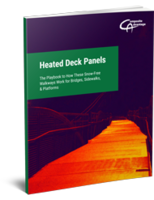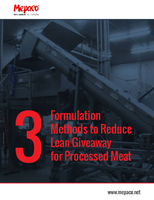International Requests lead to total evaporation standard.
Press Release Summary:
In response to requests from fuel producers worldwide, ASTM International Committee C26 on Nuclear Fuel Cycle has developed standard for using total evaporation method to determine uranium or plutonium composition. With properly equipped mass spectrometer, method is suited for analyzing very small samples and will find application with uranium enrichment facilities, nuclear fuel producers, and fuel reprocessing facilities.
Original Press Release:
International Requests Lead to ASTM Total Evaporation Standard
In response to requests from fuel producers around the world, ASTM International Committee C26 on Nuclear Fuel Cycle has developed a standard for using the total evaporation method to determine uranium or plutonium composition. The new standard, C 1672, Test Method for Determination of Uranium or Plutonium Isotopic Composition or Concentration by the Total Evaporation Method Using a Thermal Ionization Mass Spectrometer, is under the jurisdiction of Subcommittee C26.05 on Methods of Test.
Thermal ionization mass spectrometers are used in the nuclear arena to determine the isotopic composition and elemental concentration of nuclear fuel components, primarily uranium and plutonium. Compared to conventional methods, the total evaporation method offers increased sample throughput, reduced sample sizes, improved precision, potentially improved accuracy and is generally freer from interferences.
"Due to its improved utilization of sample during the analyses, the total evaporation method is well suited, with a properly equipped mass spectrometer, for analyzing very small samples," says Peter Mason, C26.05 member and reference materials program coordinator, New Brunswick Laboratory. "Therefore, the test method will find application with uranium enrichment facilities, nuclear fuel producers and fuel reprocessing facilities." In addition, Mason notes that C 1672 will be used for waste handling/disposition, establishing inventory values as part of a safeguards system (including plant systems and governmental/intergovernmental oversight), and for environmental analysis, nuclear forensics and bioassay applications.
Mason says that C26.05 plans to expand C 1672 to include more detail on smaller sample sizes and different detector types. Also, with the advent of next-generation mass spectrometers, additional test methods covering the scope and breadth of the new instrument capabilities will need to be developed and promulgated. The subcommittee welcomes participation in its standards developing, particularly from fuel producers and regulatory agencies from around the world.
ASTM International standards are available for purchase from Customer Service (phone: 610/832-9585; service@astm.org) or at www.astm.org. For further technical information, contact Peter Mason, New Brunswick Laboratory, Argonne, Ill. (phone: 630/252-2458; peter.mason@ch.doe.gov). Committee C26 meets June 22-26 at the June committee week in Denver, Colo. For membership or meeting information, contact Joe Koury, Technical Committee Operations, ASTM International (phone: 610/832-9804; jkoury@astm.org).




